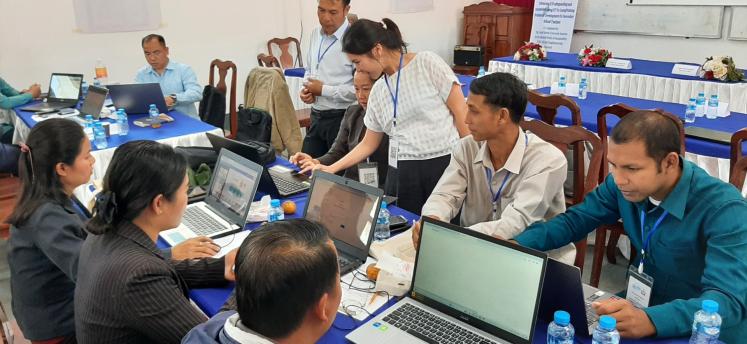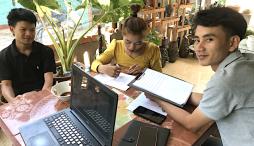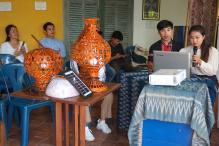On 31 January – 2 February 2024, UNU-IAS held a training workshop for secondary school teachers in Luang Prabang, Lao People’s Democratic Republic. The sessions developed skills for integrating intangible cultural heritage (ICH) into lesson plans using information and communications technology (ICT). The workshop marked the culmination of a three-year project to enhance ICH safeguarding and transmission in Luang Prabang under the Grant for Global Sustainability (GGS). It was co-organized by UNU-IAS and Souphanouvong University.
In opening remarks, Shinobu Yume Yamaguchi (Director, UNU-IAS) urged participants to both educate and empower younger generations to become ambassadors of local cultural heritage. Vongpasith Chanthakoun (Vice President, Souphanouvong University) highlighted the threats facing ICH in Luang Prabang and the crucial role of technology in transferring traditional skills, knowledge and meaning. Bualoy Itthiphone (Deputy Director, Department of Education – Luang Prabang) stressed the importance of collaboration between universities in achieving the SDGs.
The workshop was designed based on the outcomes of the previous activities of the project. Jerome Silla (Research Associate, UNU-IAS) showcased the project’s first phase — developed in partnership with Tokyo Institute of Technology — which produced an online knowledge repository for documenting and safeguarding ICH in Luang Prabang. Discussing the second phase, Sawaros Thanapornsangsuth (Research Consultant, UNU-IAS) highlighted the Youth Ambassadors' Forum, which engaged local artisans and youth in innovative community-based ICH projects.
International and local experts delivered lectures on ICH, innovative pedagogies and ICT in cultural preservation. Modules addressed topics such as ICH and community-based ICH; ICH policy and intellectual property law for ICH; innovative pedagogies and outcome-based education; and Canva, design studios and prototyping.
Equipped with new knowledge, the participants identified ICH elements within their communities and developed lesson plans based on their learnings. The lesson plans displayed creative integration of ICH across diverse subjects including teaching traditional pottery-making in chemistry, incorporating traditional food preparation to teach concepts of weight and mass in physics, and using embroidery patterns from various ethnic groups to teach math.
Summing up the workshop, Jonghwi Park (Academic Programme Officer and Head of Innovation and Education, UNU-IAS) reiterated the interconnectedness of culture and sustainable development, emphasizing the leading role of teachers in education for sustainable development beyond transferring knowledge.



